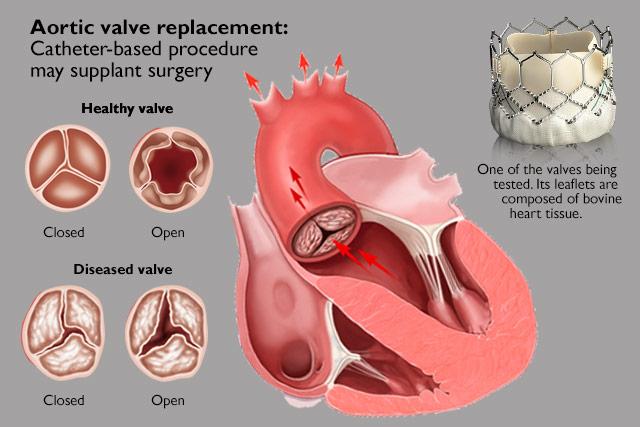Aortic Valve Replacement
India
-
Our Price USD 5850
-
Hospital Price USD 6500
-
You Save : USD 650
Booking Amount: USD 585. Pay Remaining 90% at the hospital.
Book NowAdditional Credit
Among the important extras we offer as part of the Additional Credit are the following:
-
Site Tourism For The Patient & Attendant
-
Airport Pick & Drop Service
-
Ambulance service at airport
-
Priority appointments with The Doctor
-
Cancel Easily Anytime with Full Refund
-
Room Upgradation
-
Free Online Doctor Consultation Valued at USD 20
-
Free hotel Stay for 5 to 7 days Accordingly
-
Welcome Kit at Arrival
-
Interpreter
-
Medical Visa Assistance
What is Included?
- Doctor consultation charges
- Lab tests and diagnostic charges
- Room charges inside hospital during the procedure
- Surgeon Fee
- Cost of implant
- Nursing charges
- Hospital surgery suite charges
- Anesthesia charges
- Routine medicines and routine consumables (bandages, dressings etc.)
- Food and Beverages inside hospital stay for patient and one attendant.
What is not Included?
- Extra Radiology Investigations
- Healthcare Professionals Charges of other consultations.
- Other Requested Services such as Laundry etc.
- Additional Pharmaceutical Products and Medicines After Discharge from Hospital.
- Management of Conditions Unrelated to Procedures or Pre-Existing.
- The cost of any additional implants will be in addition to the package cost.
Package Description
Aortic Valve Replacement:
Aortic valve repair and aortic valve replacement are treatments that treat illnesses affecting the aortic valve, one of four valves that govern blood flow through the heart.
The aortic valve keeps blood flowing through the heart in the right direction. It connects the main pumping chamber of the heart (left ventricle) to the major artery that carries oxygen-rich blood throughout your body (aorta).When the aortic valve isn't functioning correctly, it can obstruct blood flow and make the heart work harder to pump blood to the rest of the body. Aortic valve repair or replacement can help treat aortic valve disease by restoring normal blood flow, reducing symptoms, extending life, and preserving heart muscle function.
Disease Overview:
Aortic valve disease
The valve between the lower left heart chamber (left ventricle) and the body's major artery (aorta) malfunctions in aortic valve disease. The valve may have swollen and stiffened (Stenosis), or it may not seal correctly, allowing blood to flow backward.
Disease Signs and Symptoms:
Aortic valve disease can be identified by the following signs and symptoms:
- A whooshing or swishing heart sound (heart murmur)
- Pain or tightness in the chest.
- Dizziness.
- Fainting.
- Fatigue after physical exercise or a reduced capacity to be physically active.
- Heartbeat that isn't regular.
- Shortness of breath, especially when engaged in strenuous exercise or when lying down.
Disease Causes:
A cardiac abnormality present at birth may induce aortic valve disease (congenital heart defect). Other late-life causes of aortic valve dysfunction include: Heart changes as people become older. Infections. Blood pressure that is too high.
Disease Diagnosis:
Your doctor will perform a physical check and listen for a heart murmur, which might indicate a heart valve problem. Your problem may be diagnosed by a series of tests.
The following tests may be performed:
Echocardiography. Sound waves from a wand-like instrument (transducer) are aimed towards your heart, producing video pictures of your heart in action. This test evaluates your heart's anatomy, heart valves, and blood flow via your heart. An echocardiography allows your doctor to examine the heart valves in detail and determine how well they are functioning. A 3D echocardiography may also be used by doctors.
A tiny transducer connected to the end of a tube is put down the tube leading from your mouth to your stomach in another form of echocardiography called a transesophageal echocardiogram (esophagus). This test allows your doctor to get a better look at your heart valves than a conventional echocardiogram allows.
An EKG is a type of Electrocardiogram (ECG). Electrical impulses from your heart are measured using wires (electrodes) placed to pads on your skin. An electrocardiogram (ECG) can identify enlarged heart chambers, cardiac illness, and irregular heart rhythms.
X-ray of the chest. Your doctor can use a chest X-ray to see if your heart is enlarged, which can suggest some forms of heart valve problems. A chest X-ray can also help physicians figure out how healthy your lungs are.
MRI of the heart. A cardiac MRI creates comprehensive pictures of your heart using magnetic fields and radio waves. It can analyse the size and function of your lower heart chambers as well as establish the severity of your illness.
Exercise or stress tests are two different types of testing. Various exercise tests may be used to assess your activity tolerance and track your heart's reaction to physical effort. If you are unable to exercise, drugs that imitate the effects of exercise on the heart may be prescribed.
Catheterization of the heart. This test isn't commonly used to identify heart valve disease, but it might be done if other tests fail to diagnose or assess the severity of the illness. A doctor inserts a tiny tube (catheter) into a blood vessel in your arm or groyne, directs it to a heart artery, and injects dye into the catheter to make the artery visible on an X-ray. This gives your doctor a clear view of your heart arteries and how your heart works. The pressure inside the heart chambers can also be measured.
Treatment Procedures:
Treatment for heart valve disease is determined by your symptoms, the severity of your illness, and whether or not it is worsening.
Your care will be provided by a cardiologist, a specialist who specialises in heart problems. Treatment may include frequent follow-up visits to check your condition. It's possible that you'll be requested to:
- Make lifestyle adjustments that are good for you.
- To treat symptoms, use medicines.
- If you have atrial fibrillation, which is an abnormal heart beat, you should take blood thinners to lower your risk of blood clots.
Surgical or non-surgical techniques
Even if you don't have symptoms, you may require heart valve surgery to repair or replace the defective heart valve. If you need surgery for another cardiac problem, your doctor may decide to repair or replace the defective valve as well.
A cut (incision) in the chest is generally used during heart valve surgery. Doctors occasionally do minimally invasive heart surgery, which requires fewer incisions than open-heart surgery. Doctors perform robot-assisted heart surgery at various medical institutes, which is a sort of minimally invasive heart surgery in which surgeons employ robotic tools to accomplish the process.
Valve repair or replacement are two surgical alternatives.
Valve replacement in the heart
To maintain your heart valve, your doctor may propose heart valve repair. Surgeons may perform the following procedures to repair a heart valve:
- Repair a valve's holes.
- Valve leaflets that have fused should be separated.
- Replace the cables that hold the valve in place.
- Excess valve tissue should be removed so that the valve can seal firmly.
Surgeons frequently use an artificial ring to tighten or strengthen the ring around a valve (annulus). In certain circumstances, surgeons employ long, thin tubes to repair specific valves, which is a less intrusive process (catheters). Clips, plugs, and other devices may be used in these operations.
If the damaged valve cannot be repaired, surgeons may replace it with a mechanical valve or one manufactured from cow, pig, or human heart tissue (biological or tissue valve).
Heart valve replacement
If you had a mechanical valve replaced, you'll have to take blood thinners for the rest of your life to avoid blood clots. Biological tissue valves degrade over time and must be replaced in most cases.
Transcatheter aortic valve replacement (TAVR) is a minimally invasive treatment that can be used to replace a damaged aortic valve. A long, thin tube (catheter) is inserted into an artery in your leg or chest and guided to the heart valve during this surgery. This catheter is used to transfer a replacement valve to the proper location.
Information related to Treatment
Package Details
Days in Hospital
7 Days
Days in Hotel
*
12 Days
Room Type
Private
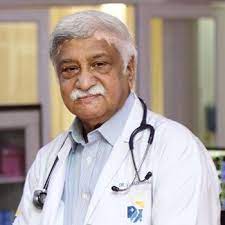
Treating Doctor
Dr. Col V Hariharan
Cardiologist- Electrocardiography, Pacemaker Implantation, Coronary Angiography, Heart valve replacement, Cardiac Ablation, Implantation of ICD, Electrophysiology Studies (EPS), ECG analysis
Indraprastha Apollo Hospitals, New Delhi New Delhi, India
38 Years of Experience
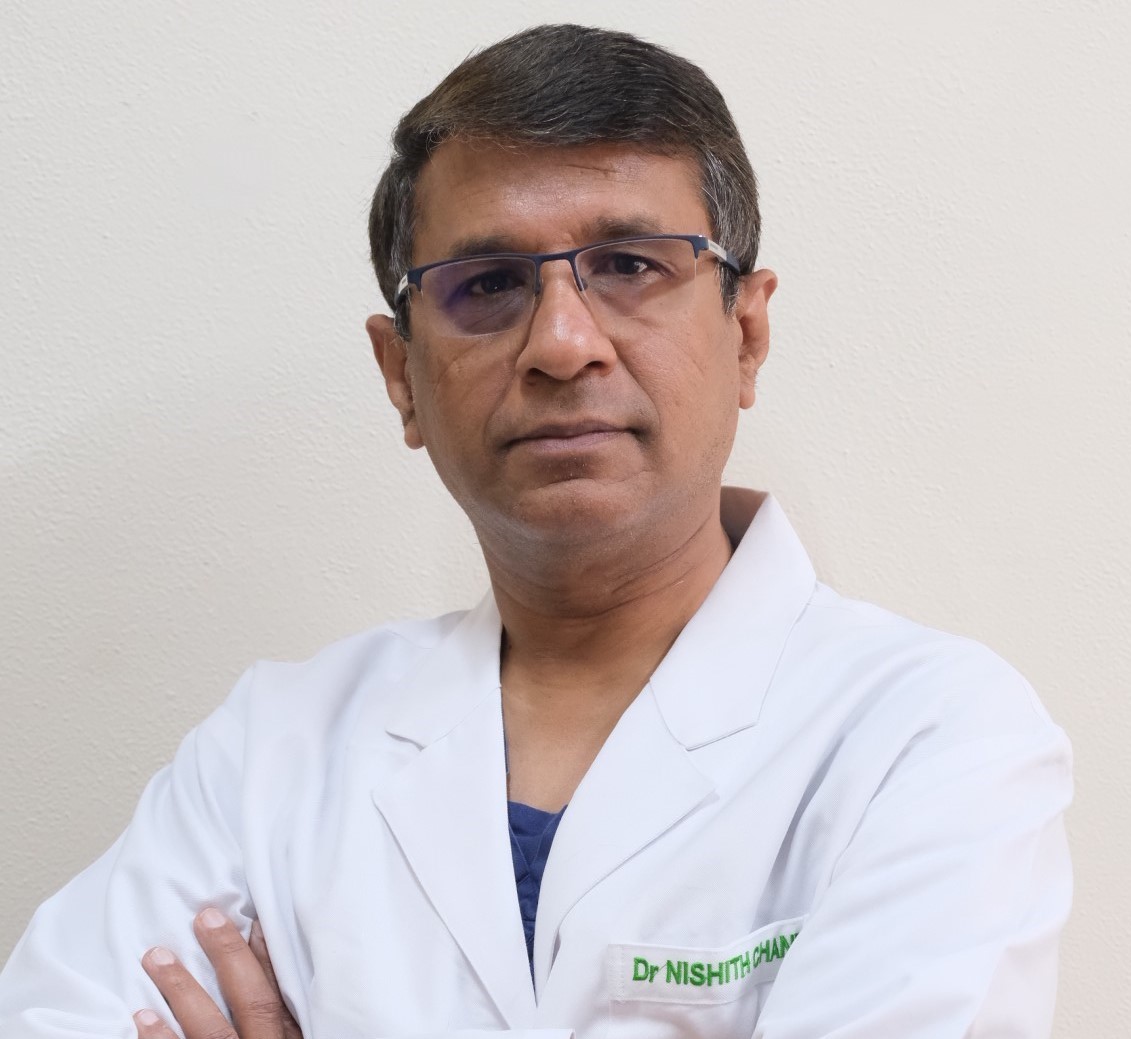
Treating Doctor
Dr. Nishith Chandra
Interventional Cardiologist- Pacemaker Implantation, Coronary Angiogram, Cardiac Catheterisation, Carotid Angioplasty And Stenting, Implantable Cardioverter-Defibrillators (ICDS), Peripheral Angioplasty
Fortis Escorts Heart Institute New Delhi, India
29 Years of Experience
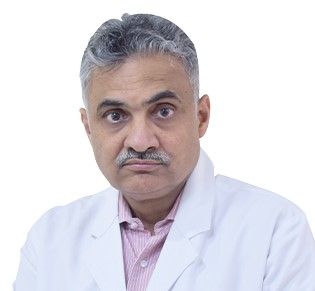
Treating Doctor
Dr. Praveer Aggarwal
Cardiologist- Coronary Artery Bypass Grafting, Coronary Angiogram, Peripheral Angiography, Coronary Angioplasty / Bypass Surgery, Cardiac Ablation, Cardiac Catheterisation
Fortis Escorts Heart Institute New Delhi, India
31 Years of Experience
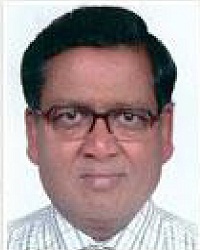
Treating Doctor
Dr. Mahesh Chandra Garg
Cardiologist- Coronary Angiography, Cardiac Electrophysiology, Coronary Angioplasty, Radiofrequency Ablation for Arrhythmias
Indraprastha Apollo Hospitals, New Delhi New Delhi, India
50 Years of Experience
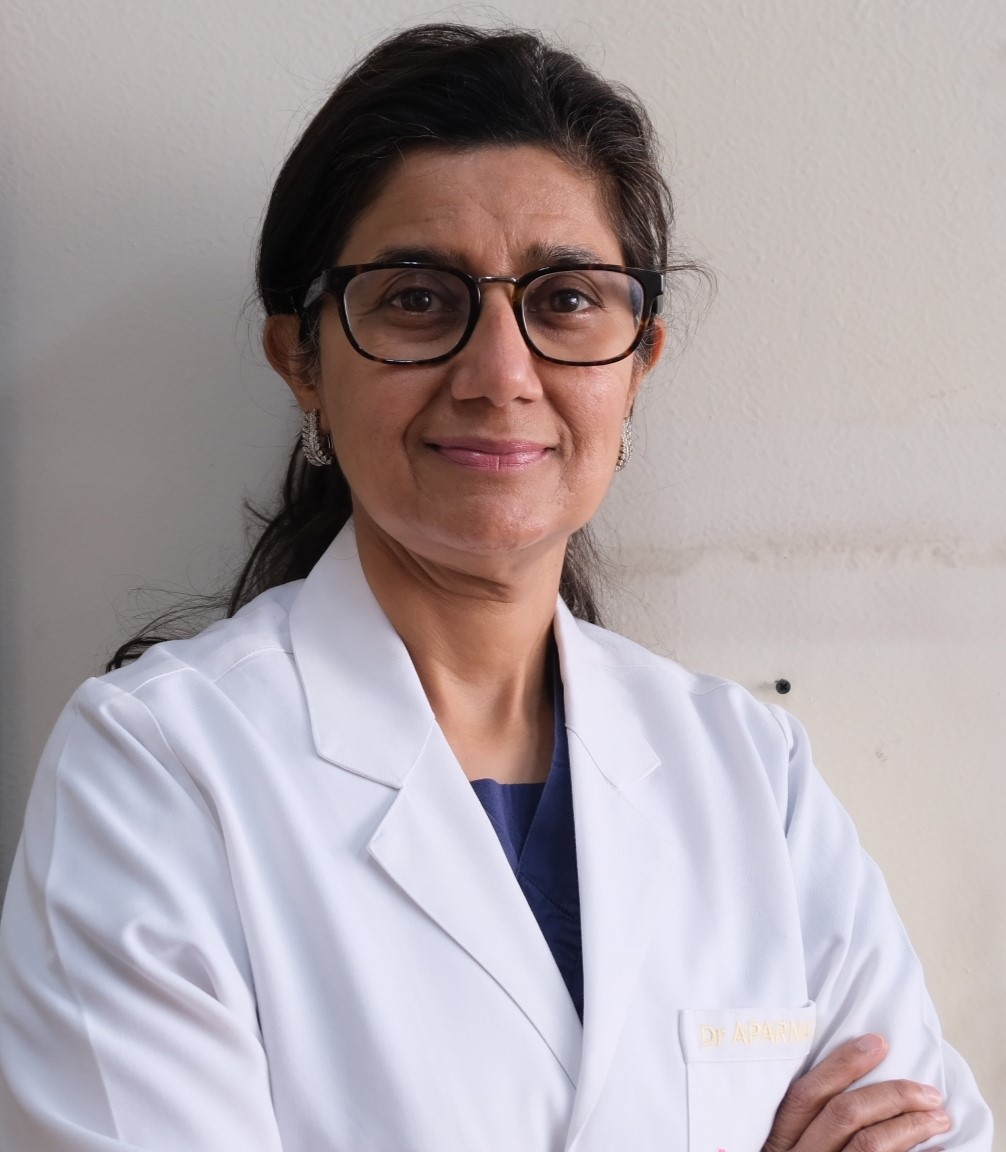
Treating Doctor
Dr. Aparna jaiswal
Cardiologist- Pacemaker Implantation, Three Dimensional Mapping, ICDs, CRT, CRT D, Electrophysiology Studies (EPS), Complex Arrhythmia
Fortis Escorts Heart Institute New Delhi, India
26 Years of Experience
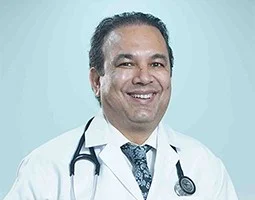
Treating Doctor
Dr. Umesh Kohli
Interventional Cardiologist- Echocardiography, Pacemaker Implantation, Coronary Angiography, Coronary Angiogram, Cardiac Ablation, Cardiac Catheterisation, ASD VSD repair, Cardioversion, Implantable Cardioverter-Defibrillators (ICDS), Peripheral Angioplasty, Non Invasive Cardiology, Chest Pain Treatment, Bypass Surgery, CT angiogram, Cardiology, Balloon Mitral Valbuloplasty
Accord Super specialty Hospital Faridabad, India
24 Years of Experience
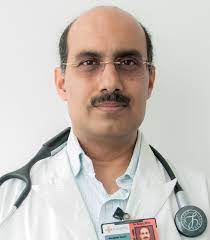
Treating Doctor
Dr. Sanjay Mittal
Cardiologist- Pacemaker Implantation, Radial Angioplasty, Bio Absorbable Stents, AICD Implantation
Medanta-The Medicity, Gurgaon Gurgaon, India
30 Years of Experience
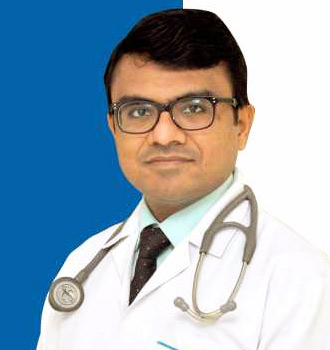
Treating Doctor
Dr. Ashish Agarwal
Cardiologist- Pacemaker Implantation, Angiography, Echo Cardiology, Angioplasty, Cardiac Catheterisation, TMT, Non Invasive Cardiology, AICD Implantation, Holter Monitoring, Renal & peripheral stenting, Coil embolization, Percutaneous valve dilatation, ASD/ VSD device closure, AICD and CRT implantation
Aakash Healthcare Super Speciality Hospital New Delhi, India
17 Years of Experience
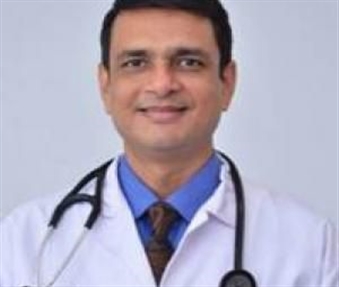
Treating Doctor
Dr Adil Rizvi
Cardiac Surgeon- Coronary artery bypass graft (CABG) surgery, MIDCAB Sugery, Heart valve replacement, Mitral valve replacement, Aortic Valve Replacement & Repairs
Metro Hospital (Heart Institute with Multispeciality) Faridabad, India
17 Years of Experience
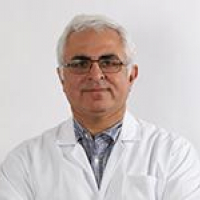
Treating Doctor
Dr. Hemant Madan (Prof)
Cardiologist- Adult & Paediatric- Pediatric Cardiology, Complex coronary interventions, peripheral interventions, Device implantation for rhythm disorders, Valve stenosis, Complex coronary and adult interventions, Paediatric interventions, Advanced pacing and device management, Paediatric and fetal echocardiography
Narayana Super Speciality hospitals Gurgaon, India
18 Years of Experience

